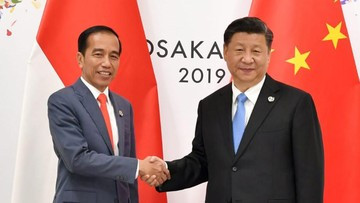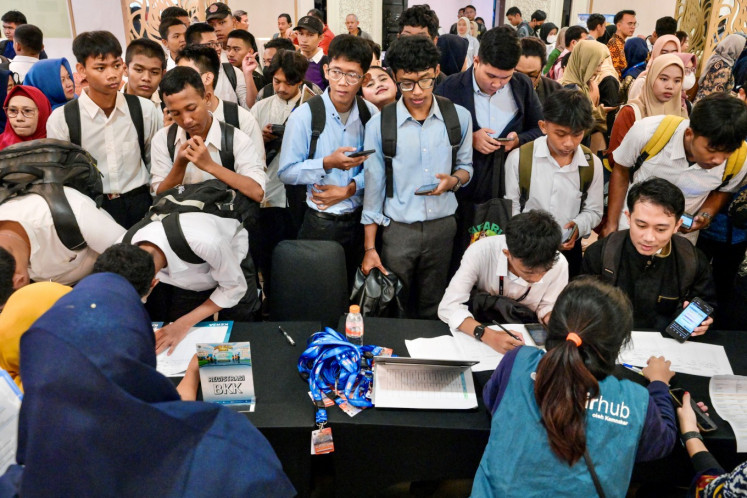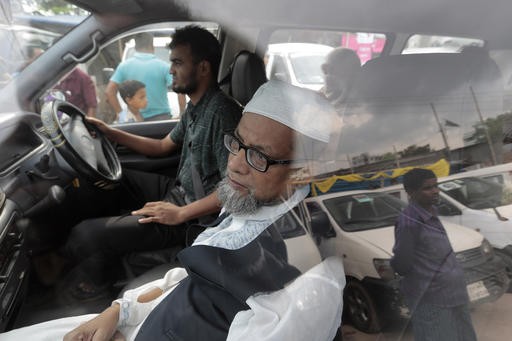Popular Reads
Top Results
Can't find what you're looking for?
View all search resultsPopular Reads
Top Results
Can't find what you're looking for?
View all search resultsBump in the road
One thing is very clear: The railway project is too big to fail, but it is also too costly to continue.
Change text size
Gift Premium Articles
to Anyone

It is urgent for President Joko “Jokowi” Widodo to personally raise the issue of the problematic Jakarta-Bandung high-speed train project with Chinese President Xi Jinping during the Group of 20 Summit in Rome on Oct. 30-31, for the sake of the countries’ bilateral ties and for the interest of China’s global credibility.
The US$6.07 billion project was a result of Jokowi’s bilateral talks with President Xi soon after the former took office in October 2014.
As the two leaders have a very good personal relationship, they will most likely be able to find a mutually beneficial solution. One thing is very clear: The railway project is too big to fail, but it is also too costly to continue.
We also call on President Jokowi to reconsider his offer to China to construct the Jakarta-Surabaya railway project, at least until the Jakarta-Bandung project renegotiation is completed. This first work should be settled before the government can offer the Jakarta-Surabaya train project to international bidders.
The two megaprojects are sensitive political issues in the country and, therefore, discussions at the highest level are imperative. China is one of the most important trading partners and sources of investment for Indonesia.
The good news is, Coordinating Maritime Affairs and Investment Minister Luhut Pandjaitan has received assurance from Chinese Foreign Minister Wang Yi that China was fully committed to completing the Jakarta-Bandung railway project.
Personal intervention of the Chinese leaders is very important because it can affect mutual trust between the two countries. The Jakarta-Bandung project has failed to meet its original target of completion in 2019 and has been delayed until 2022. The ongoing work is also experiencing a sharp cost overrun of 23 percent. And more importantly, the project will eventually drain the state budget, directly or indirectly, contradicting the spirit of the project, which is said to follow a business-to-business mechanism.
President Jokowi chose China over Japan to build the 142.3-kilometer high-speed railway because China offered a purely business-to-business financing scheme. The President abandoned Japan, which had submitted its complete feasibility study and offered a very generous loan to finance the project, but in a government-to-government loan.
The delay of the project has now caused severe financial consequences for the Indonesia-China High-Speed Train (KCIC) consortium, which comprises state-owned companies from both sides. Indonesia’s side controls 60 percent of the shares.
The Indonesian consortium has to bear a higher burden because according to the contract, any additional costs would be the burden of the consortium, which means Indonesia has to bear a bigger financial responsibility than its Chinese counterpart.
The government has to inject fresh money into the Indonesian state companies, which only means that the state budget is eventually spent on the project.
The railway project is originally expected to become a symbol of the close and mutually beneficial relationship between Indonesia and China. President Jokowi has even planned to invite President Xi to try the train service when Indonesia hosts the G20 summit next year.
We do believe President Jokowi will secure a win-win solution from President Xi for the sake of the bilateral ties between the two nations. China will not let this problem affect its global posture.










